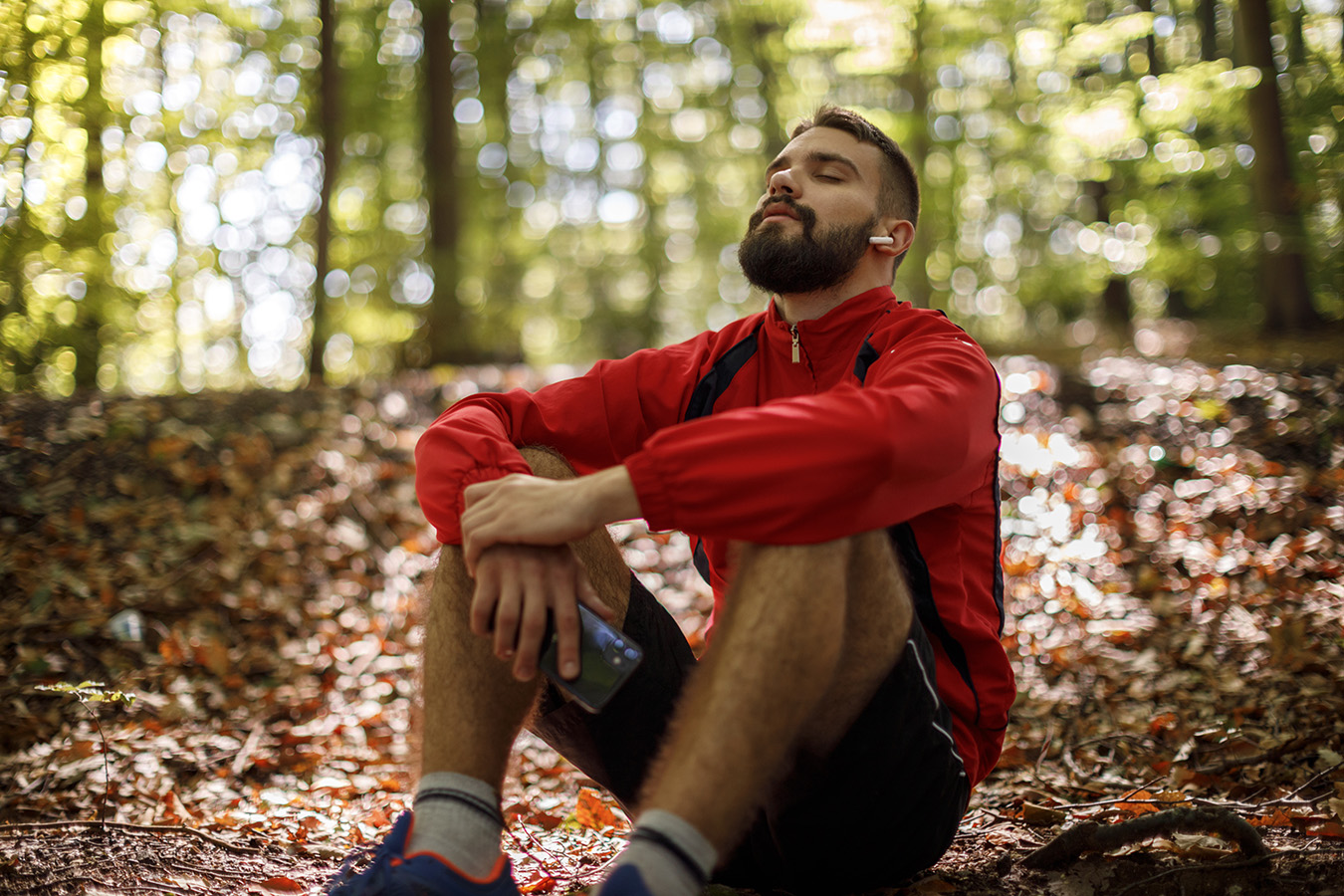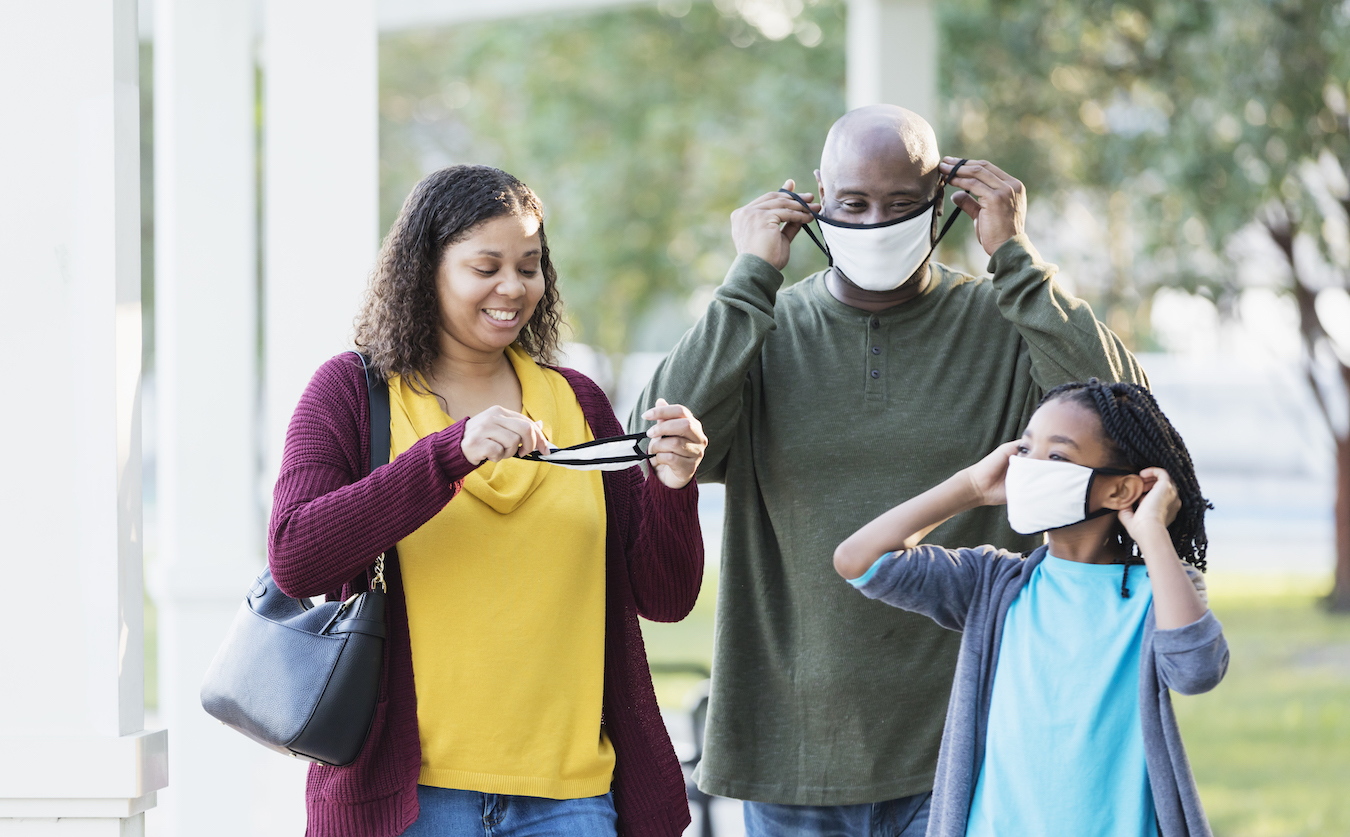Am I Okay?

When the fabric of society unravels, how do you keep a healthy emotional balance? That question haunted us throughout the pandemic, and for some, it remains unresolved. For nearly two years, we’ve had to ensure personal and public safety by avoiding the people, places, and things that contribute to a healthy psyche – extended family and friends, social gatherings, and hugs. Before COVID-19 vaccines became available, a trip to the grocery store might be fatal, depending on your age and underlying health conditions.
Throw in social and political upheaval and natural disasters, and you’ve got a recipe for anxiety and depression.
Is it any wonder that many of us fell into a rut so deep we worried about our mental health? And those who lost loved ones to the virus have an even steeper climb out of the valley of the shadow of death.
At times like these, isolating at home may seem the safest choice.
Felicia Gould, Ph.D., a neuropsychologist at the University of Miami Health System, begs to differ.
“People need people. We depend on each other. It’s the very fabric of our society.”
As we tiptoe “one step forward, one step back” out of this public health crisis, Dr. Gould’s insights can help us understand when our emotional health is cause for concern.
Has the pandemic left me with a personality disorder?
Pandemic weight gain, sweatpants, beard growth, and gray hair gave comedians plenty of fodder. The joke falls flat when isolation jeopardizes your mental health. If you find yourself avoiding even safe social situations (more on that later), you may begin to doubt your sanity. Having a hard time breaking out of homebody mode is not an actual personality disorder, however. “Anxious-Avoidant Personality Disorder (AAPD) is a long-term condition over the life span. It usually starts in the teen years as a pervasive pattern of avoiding social situations. Most mental disorders have a big spike in early adulthood.”
In addition to extreme social inhibition, people with AAPD often feel inferior or inadequate. Like any mental disorder, the behaviors happen across a spectrum. If you feel like your behavior interferes with your ability to function and enjoy life, seek help from a professional therapist.
Social Anxiety Disorder (SAD), sometimes called social phobia, is more widespread. “I tell clients, ‘There’s a reason alcohol is typically served at social events.’ Experiencing social anxiety is a very common part of life. Social Anxiety Disorder occurs in about 5% of the population and is more than twice as common as Avoidance Personality Disorder. Social Anxiety Disorder can be long-term or occur at any time,” Dr. Gould says.
When SAD or social phobia gets in the way of life, it’s time to seek support. A licensed therapist will listen to your concerns and give you tools to help you move forward.
Get your groove back
Just as many folks want to shed the “quarantine 15”, it’s not a bad idea to evaluate your mental health after the global trauma of the last year and a half. “If I was feeling unwell and avoiding safe get-togethers with vaccinated friends, I’d check in with myself and ask: Are you nervous, down, or not feeling like yourself? Do you lack energy? Are you not content with your life?” Dr. Gould says.
After months of working from home and possibly homeschooling, it’s not unusual to feel emotionally drained. You may lack focus and motivation. You may find yourself eating too much and sleeping too little. No one wants to socialize when exhausted; it’s just easier to stay home than seek the company of others.
Emerging from malaise isn’t easy, but you don’t have to do it alone.
Start by seeing a primary care doctor to rule out any underlying medical condition. An honest discussion with your doctor can help you decide whether to get evaluated for depression or another mental health condition. “There are so many ways to get help. The pandemic made it easier, more private, and convenient to get therapy through apps, text, and phone. I conduct all my therapy sessions through telehealth, like Zoom,” Dr. Gould says.
To normalize the discussion around mental health, she tells clients, “I cook a lot, but I don’t grow the food. It’s okay to need help and to depend on each other.”
Socialize safely
If you’re reading this, you probably didn’t attend spring break, the Sturgis Motorcycle Rally, or other events of super-spreader proportions. Your common sense is intact, but if you still feel tentative about get-togethers, consider Dr. Gould’s advice. “All people should be socializing. Just evaluate your risk level and do so safely. If it’s with a small network of vaccinated people, held outside with good airflow, socially distanced, and masked, it’s safer.”
That’s right – you have permission to party, even during a pandemic. Your mind, body, and spirit will thank you for it.
If you experience thoughts of harming yourself, please call the National Suicide Prevention Hotline at 1-800-273-8255.
For more information, call UHealth mental health experts at 305-243-0214.
Nancy Moreland is a regular contributor to UMiami Health News. She has written for several major health care systems and the CDC. Her writing also appears in the Chicago Tribune and U.S. News & World Report.
READ MORE

Hate masks? They may be your best friend.
Masks are an annoyance that most of us have gotten used to over the past year. And they protect you from many irritants in the air – beyond COVID-19. Read more.
Tags: covid-19 in Miami, Dr. Felicia Gould, pandemic fatigue, social anxiety
